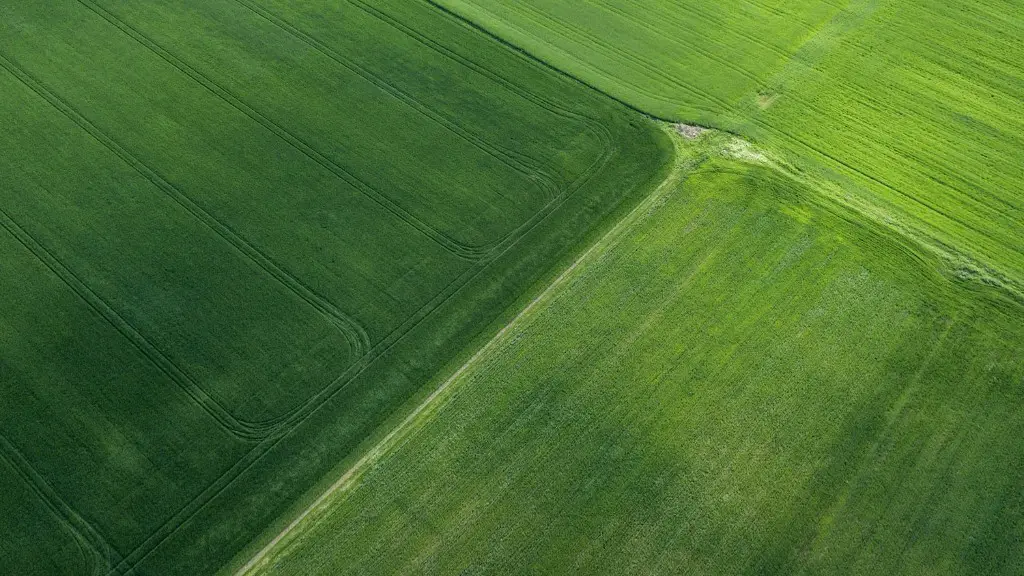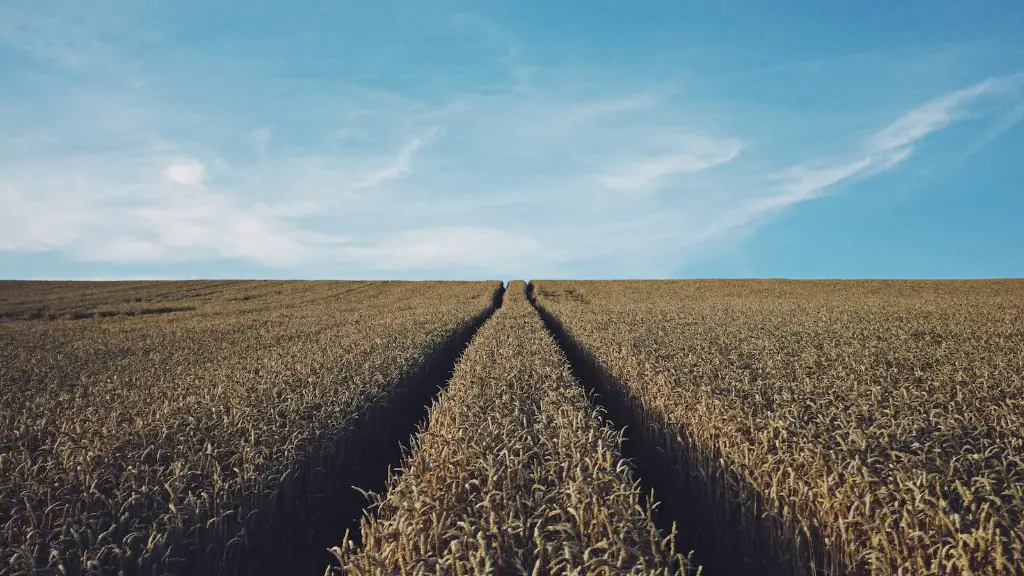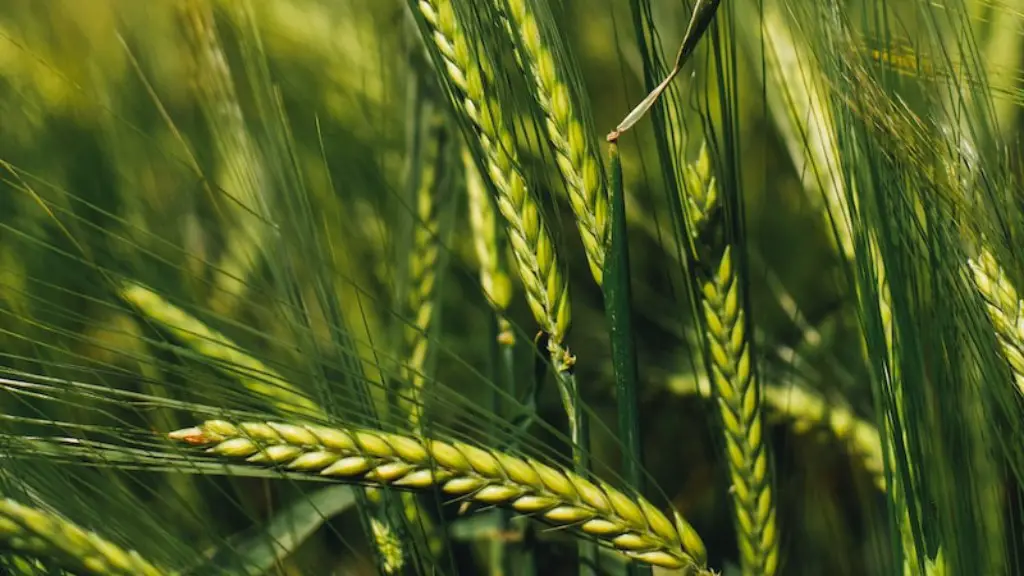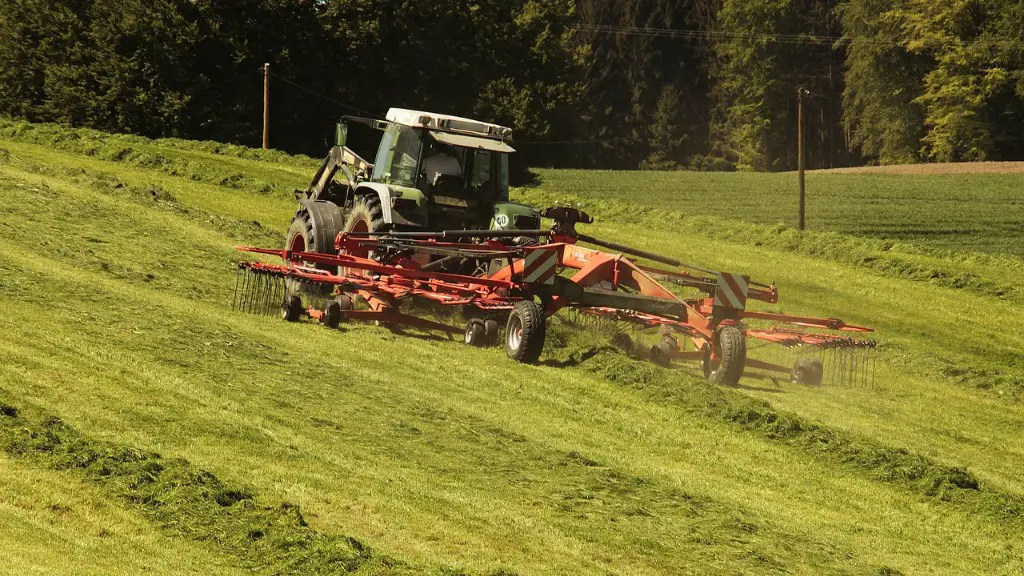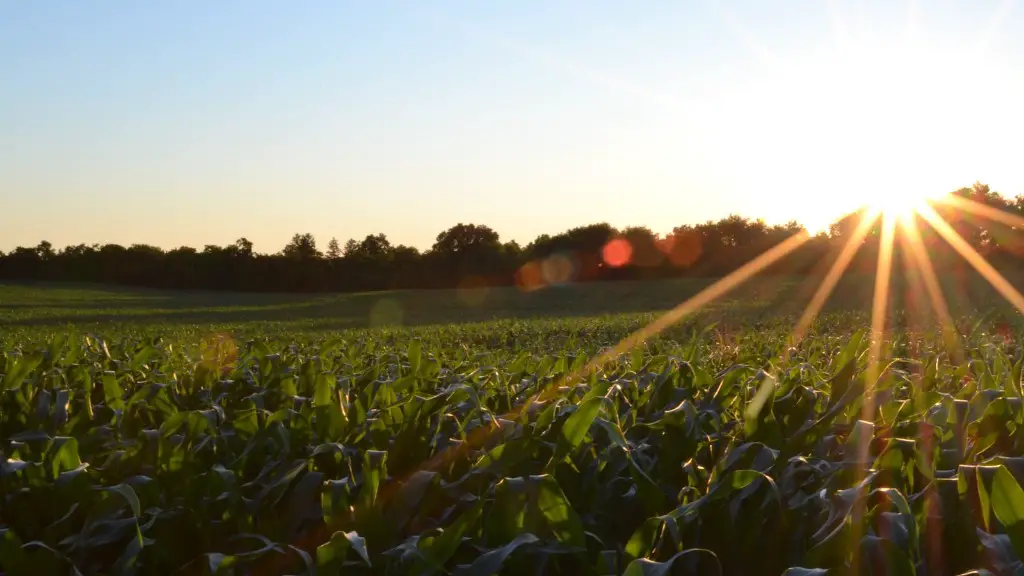Sustainable agriculture is the efficient production of food, fibre, and other plant and animal products, while minimizing environmental degradation, conserving natural resources, protecting the health of the ecosystem, and upholding human rights. Its goal is to ensure that the people who produce, consume, and benefit from agricultural production can all reap the most benefit, while minimizing the negative impacts of agricultural production. Sustainable agriculture is about embracing new ways of producing food, fiber, and energy, and understanding how these activities can be done sustainably without compromising the environment, ecosystems, or public health. This can be achieved through the use of environmentally friendly practices, like improved crop rotation, planting cover crops, utilizing crop residues, agroforestry, integrated pest management, and water conservation. By using these and other methods, sustainable agriculture strives to ensure that the productive capacity of soil resources is maintained, while simultaneously conserving and protecting the ecosystems that support our food production system.
Environmental Sustainability
Ensuring environmental sustainability is the primary goal of sustainable agriculture. This requires an understanding of how different farming practices can lessen the environmental impact of agriculture, while helping to maintain or improve agricultural productivity and the quality of goods produced. Sustainable agriculture requires farmers to think holistically and consider how their decisions will shape the environment and local ecosystems. This may include growing crop varieties that are resistant to local pests, preventing soil erosion through terracing and contour farming, and reducing the use of synthetic pesticides, fertilizers, and other chemicals. Additionally, sustainable agriculture seeks to enable farmers to become better stewards of their land, by providing the resources and nutrition necessary to maintain or improve its fertility.
What’s more, sustainable agriculture aims to diversify the way farmers produce goods, by leveraging other eco-friendly techniques such as agroforestry, agroecology, and permaculture. These systems can be used to create ”living” farms that can better absorb the impact of floods, droughts and fuel emissions, while also enhancing biodiversity. Through agroecology for instance, organic farming methods are used to produce food without the use of chemical inputs, thereby reducing the need for agricultural chemicals that can disrupt the balance of ecosystems.
Apart from on-the-ground management, also important are the policies and regulations that can be used to ensure that agriculture is carried out in an environmentally sustainable manner. Policies such as input subsidies and carbon taxes can help to steer farmers towards certain practices and technologies that are seen as environmentally beneficial.
Overall, the goal of sustainable agriculture is to ensure that the people who produce, consume, and benefit from agricultural production can do so sustainably. This involves a holistic approach that takes into account the impacts on environment, local ecosystems and public health, while ensuring that agricultural production will remain productive and of high quality.
Social Sustainability
In addition to the environmental aspects, sustainable agriculture is also concerned with the social impacts of production. This recognises the importance of providing industry-wide rights, benefits, and training to farmers and agricultural workers of all levels. As such, wages and working conditions should be fair and safe, and direct financial support or inclusion in social programmes should be provided to ensure these workers have access to health care, finance, education, and leisure activities.
By incorporating social goals into agricultural practices, farmers will be able to ensure that their activities do not interfere with the rights of vulnerable populations, and that their activities are not contributing to any social injustices. This may involve considering things like fair pricing practices, women’s empowerment, and upholding human rights in the production of goods and services.
Another important aspect of social sustainability is recognising and respecting the rights of farmers to own their land and farming practices, while also allowing them to negotiate with other parties, such as buyers, packaging plants, and food processors, to ensure they receive fair prices for their goods. Establishing transparent and fair contracts can help to ensure that farmers are not taken advantage of and are able to fairly and sustainably operate their farms.
In addition, by raising consumer awareness and education of these social issues, consumers can become more mindful of their food choices, providing an additional layer of support for those who produce their food. This can help to create demand for sustainably produced products and further the goal of sustainable agriculture.
Economic Sustainability
Sustainable agriculture also focuses on ensuring economic sustainability for farmers and agricultural workers, both in the short and long term. To this end, various methods can be adopted to ensure that viable and equitable returns are provided to farmers and their communities. These may involve providing access to credit, inputs and services, as well as ensuring farmers receive fair prices for their produce.
Sustainable farming practices can also provide economic opportunities for small-scale and family farms. This could include providing access to agro-ecological technologies and sustainable land management practices, as these can lead to more efficient production and higher incomes. Furthermore, sustainable farming practices can also lead to increased market opportunities, as there is typically growing consumer demand for sustainable produce.
The goal of economic sustainability also means providing access to services and resources that will enable farmers to manage their farms in a more sustainable way. This includes providing access to information and technology, as well as reliable systems of finance, low-interest credit, and adequate insurance.
Ultimately, the goal of sustainable agriculture is to ensure financial viability and sustainability for farmers and their communities. This can be achieved through the adoption of environmentally friendly practices, creating equitable working relationships, and providing access to resources that can increase efficiency and profitability, while still creating a resilient agricultural sector.
Health Sustainability
Sustainable agriculture also seeks to ensure the health and safety of all persons involved in the production and consumption of food. This includes making sure that poisonous or harmful inputs and chemicals are avoided, and that safe and hygienic practices are used at all stages of production. What’s more, sustainable agriculture ensures that agricultural workers and consumers alike have access to safe and nutritious food.
To achieve health sustainability, producers should be aware of the potential health risks associated with the use of certain inputs and practices. This includes the safe use of fertilizers and chemical inputs, as well as methods of irrigation and post-harvest storage. All of these should be done in an ecological manner, to ensure that healthy and nutritious foods are produced, without harming the environment and ecosystems.
Additionally, sustainable farming practices can also help to provide access to fresh and balanced diets. This can be achieved by diversifying the foods produced, and leveraging traditional techniques to conserve indigenous crops and improve yields. This can in turn provide better access to diverse and nutritious foods, while also making them more affordable and available.
Finally, health sustainability also involves promoting better eating and lifestyle habits among consumers. This includes providing educational tools and resources to consumers, so they can become more knowledgeable about eating healthy, as well as promoting healthy practices among farmers and agricultural workers, such as proper hygiene, safe and adequate working conditions, and the use of protective equipment.
Conclusion
Sustainable agriculture is the efficient production of food, fibre, and other plant and animal products, while minimizing environmental degradation, conserving natural resources, protecting the health of the ecosystem, and upholding human rights. Its goal is to ensure that the people who produce, consume, and benefit from agricultural production can do so sustainably. To achieve this, sustainable agriculture strives to protect and conserve the environment, ecosystems and public health, while also promoting social justice and economic sustainability. Furthermore, sustainable agriculture also seeks to ensure the health and safety of all persons involved in the production and consumption of food, and provide consumers with access to nutritious and healthy foods. Ultimately, sustainable agriculture is about embracing new ways of producing food, fiber, and energy, and understanding how these activities can be done sustainably without compromising the environment, ecosystems, or public health.
